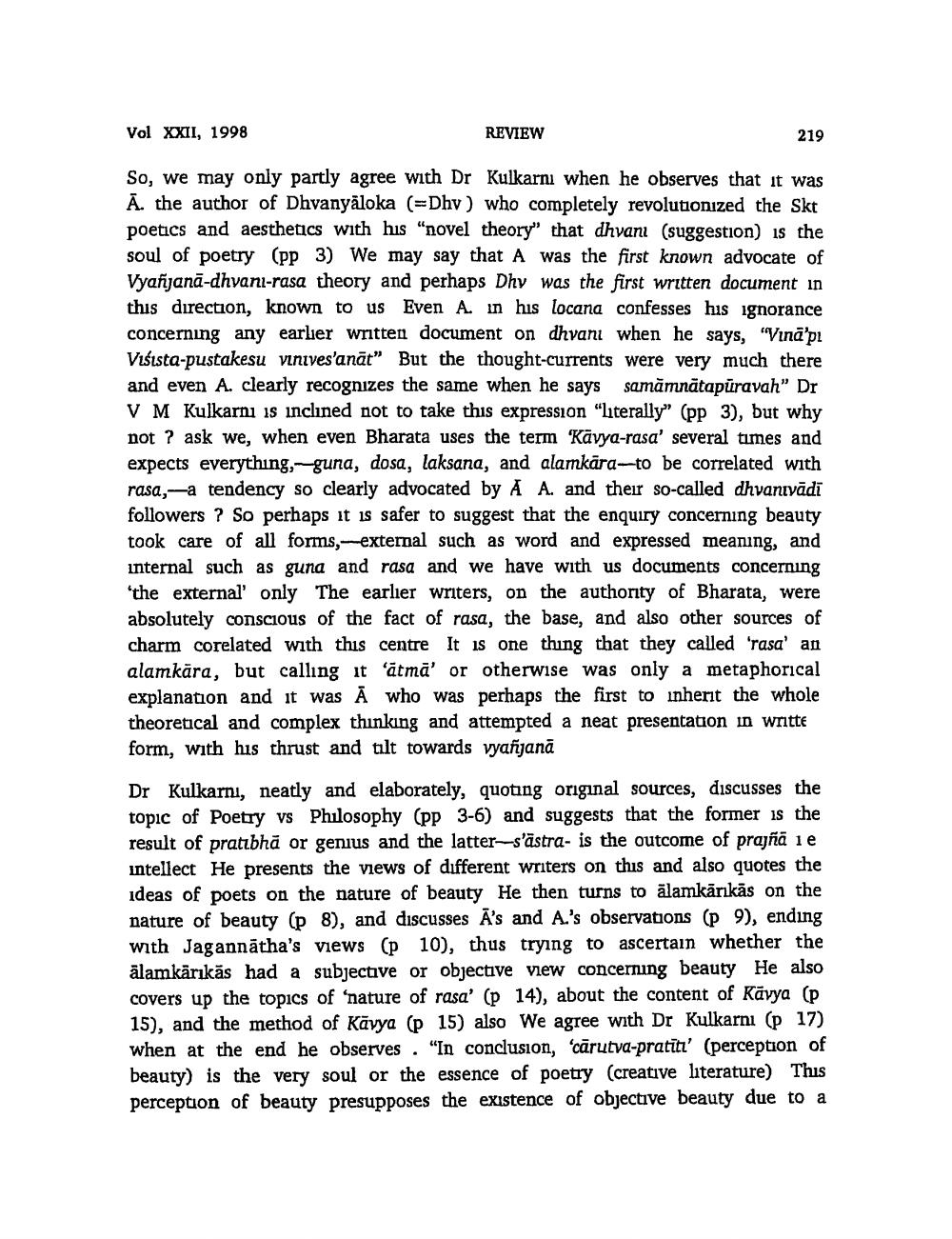________________
Vol XXII, 1998
REVIEW
219
So, we may only partly agree with Dr Kulkarni when he observes that it was Ā. the author of Dhvanyaloka (=Dhv) who completely revolutionized the Skt poetics and aesthetics with his “novel theory that dhvani (suggestion) is the soul of poetry (pp 3) We may say that A was the first known advocate of Vyañjanā-dhvani-rasa theory and perhaps Dhy was the first written document in this direction, known to us Even A. in his locana confesses his ignorance concerning any earlier written document on dhvani when he says, "Vinā'pı Visusta-pustakesu vinives'anāt” But the thought-currents were very much there and even A. clearly recognizes the same when he says samămnätapūravah" Dr V M Kulkarnı is inclined not to take this expression "literally" (pp 3), but why not ? ask we, when even Bharata uses the term "Kavya-rasa' several times and expects everything,-- guna, dosa, laksana, and alamkāra-to be correlated with rasa,-a tendency so clearly advocated by A A. and their so-called dhvanıvādī followers ? So perhaps it is safer to suggest that the enquiry concerning beauty took care of all forms-external such as word and expressed meaning, and internal such as guna and rasa and we have with us documents concerning 'the external' only The earlier writers, on the authority of Bharata, were absolutely conscious of the fact of rasa, the base, and also other sources of charm corelated with this centre It is one thing that they called 'rasa' an alamkāra, but calling it 'ātmā' or otherwise was only a metaphorical explanation and it was Ā who was perhaps the first to inherit the whole theoretical and complex thinking and attempted a neat presentation in writte form, with his thrust and tilt towards vyañjanā
Dr Kulkarni, neatly and elaborately, quoting original sources, discusses the topic of Poetry vs Philosophy (pp 3-6) and suggests that the former is the result of pratibhā or genius and the latter-s'āstra- is the outcome of prajñā ie intellect He presents the views of different writers on this and also quotes the ideas of poets on the nature of beauty He then turns to älamkārıkās on the nature of beauty (p 8), and discusses A's and A.'s observations (p 9), ending with Jagannātha's views (p 10), thus trying to ascertain whether the ālamkārıkās had a subjective or objective view concerning beauty He also covers up the topics of 'nature of rasa' (p 14), about the content of Rāvya (p 15), and the method of Kavya (p 15) also We agree with Dr Kulkarni (p 17) when at the end he observes. "In conclusion, cărutva-pratiti' (perception of beauty) is the very soul or the essence of poetry (creative literature) This perception of beauty presupposes the existence of objective beauty due to a




